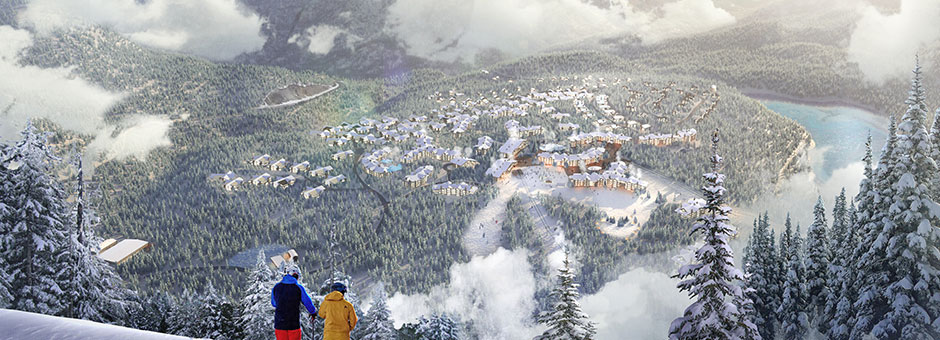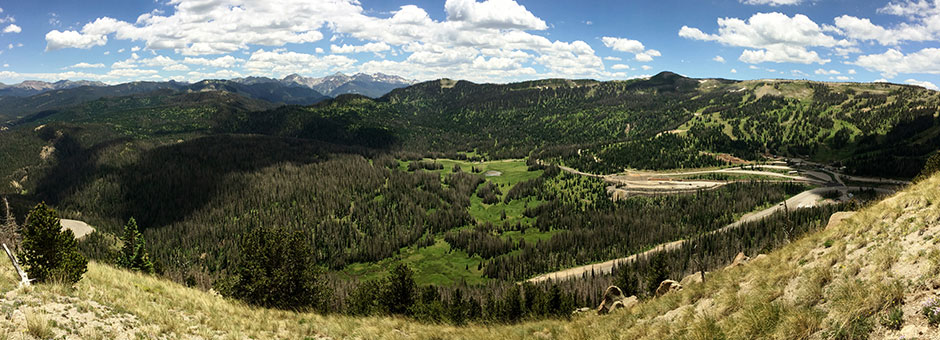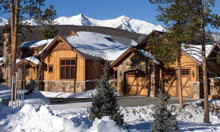
Frequently Asked Questions
Learn more about The Village at Wolf Creek.
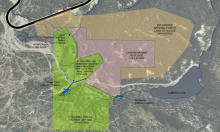
The Opposition
This is NOT your local grass-roots coalition fighting against the project.
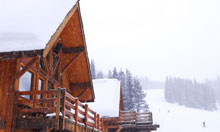
News and Press
Read new articles and press realeases about the Village.
The True History
The Wolf Creek Ski Area is a treasure for Mineral County and Southern Colorado.
Many years ago an effort began to create a truly unique, enhanced outdoor and wilderness experience to complement the Ski Area so that the area could be enjoyed by more people and provide badly needed jobs for the region. Despite these efforts to bring to life a decades-long dream of a high-quality boutique base village at Wolf Creek, environmental groups from outside the tri-county region surrounding Wolf Creek fought these efforts through litigation and an avalanche of misinformation. This is the “True Story” of the Village at Wolf Creek.
First, the land at the base of Wolf Creek is private land and has been private land for over 30 years. It is not public land, nor Forest Service land. No court has ever ruled that it is not private land. No court has held that the project cannot be built. No court has held that the owners are not entitled to access their land. As is the case with any private land, the owners have the right to decide how to use it. Second, the only dispute about this land – and the only impediment to the realization of the project – is the need for a road to access the property. That is all that the litigation has been about: how to best access the property, not whether it will be developed. Federal law absolutely entitles the owners of private land surrounded by public land adequate access to their property. Since the project was first envisioned, the federal government has always held that use of this property as a base village is reasonable and no court has ever questioned that. Eventually, road access will be granted and construction will start. However, the litigation brought by these groups will make it more expensive and has successfully delayed the project, to the detriment of the local residents, workers, and families who will benefit from the development.
What Was Originally Planned Actually Got Smaller
The opponents of Wolf Creek claim that the development as now proposed is much larger than originally planned. That is simply not true. Before the land exchange was closed in 1987, the owners hired Sutherland Fallen, a land-planning firm from Aspen that developed a new plan for a resort of 2,151 units. That plan was submitted to the Forest Service and Mineral County prior to the land exchange closing. Furthermore, the following brochure was widely distributed to the public at that time showing a rendition of the 2,151-unit plan.
View the Century 21 Marketing Brochure.
Therefore, the opponents are wrong to say that the Village, as now proposed, is larger. The 2010 plan that was recently studied by the Forest Service actually projected just over 1,700 units.
The Present Years
In 2010, the owner proposed a land exchange to trade part of the skiable terrain, the Alberta lift area, and the wetlands back to the Forest Service for land that touched the highway and would give the project its necessary access. The owner and local stakeholders believed then and still believe today that a land exchange would benefit everyone, including the Ski Area and its skier-customers, as well as the environment, with the wetlands being returned to the public. The land exchange could have been pursued either administratively through the Forest Service or through land exchange legislation, which is often used to expedite such an exchange. The opponents did not want legislation and argued for an administrative exchange. The owner wanted to do both because there was concern that after the administrative exchange, the opponents would simply file another lawsuit to try to delay the favored exchange.



